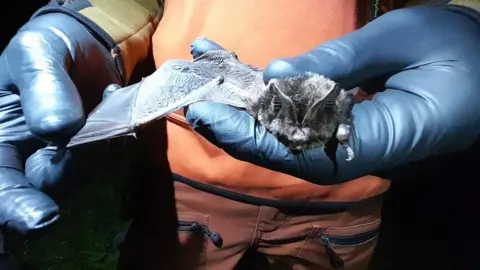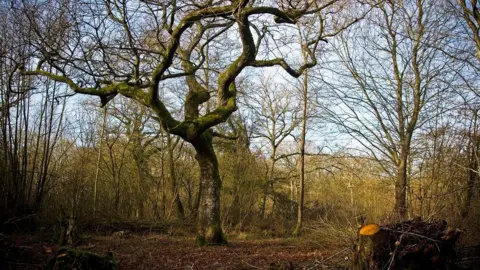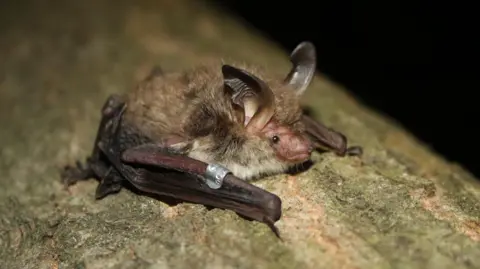Trust aims to raise £60k for bat habitats
 Wiltshire Wildlife Trust
Wiltshire Wildlife TrustBats will be getting a boost if a wildlife trust can raise £60,000 for Habitat for Bats appeal.
After the success of a smaller appeal to help a specific group of bats, Wiltshire Wildlife Trust has created a more ambitious plan to help the animals at six of its reserves.
The cost to improve habitats and monitoring is estimated to be £100,000, so this fundraising push is to "kick start this critical work".
Matt Callaway, conservation lead at the charity, said: “Bats are facing a myriad of challenges, from habitat loss and climate change to the devastating impacts of disease."
 Owain Shaw
Owain ShawHe explained that bats are crucial in the ecosystem, so it protects more than just them.
“We've been truly heartened by the incredible response to our bat conservation appeal for Green Lane Wood.
"This support has inspired us to expand our efforts and launch the Habitat for Bats appeal, which will enable us to implement a comprehensive conservation strategy across six of our reserves" he added.
The appeal for Green Lane Wood at Trowbridge hit its target very quickly.
The other reserves the trust has bat improvement plans for are: Lower Woodford, The Firs in Braydon, Blackmore Copse near Salisbury, Clouts Wood in Wroughton, and Great Wood near Royal Wootton Bassett.
 Royal Society of Wildlife Trusts
Royal Society of Wildlife TrustsThe work would involve managing woodlands to provide roosting sites for the bats with techniques like "veteranisation".
This is when roosting features are put in smaller trees that will then become useful for bats as the trees get older, which mimics more natural roosts.
Improving and creating ponds is also important as they support insects, a main food source for many bats.
There is also a multi-year monitoring programme planned to track populations, understand their movements and identify key areas for conservation action.
Follow BBC Wiltshire on Facebook, X and Instagram. Send your story ideas to us on email or via WhatsApp on 0800 313 4630.
